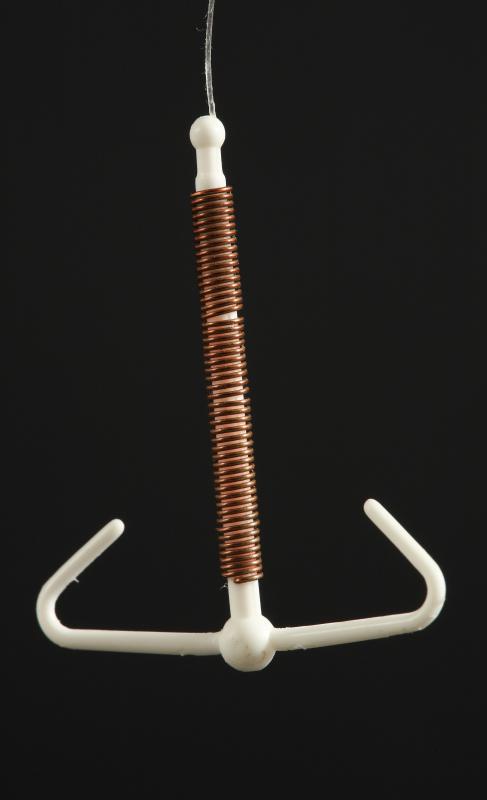At WiseGEEK, we're committed to delivering accurate, trustworthy information. Our expert-authored content is rigorously fact-checked and sourced from credible authorities. Discover how we uphold the highest standards in providing you with reliable knowledge.
What Should I Expect from IUD Periods?
Menstrual periods in women using an IUD, or intrauterine device, are often different from menstrual periods in women using other forms of birth control. The copper IUD can sometimes cause heavier menstrual periods, with more pain and cramping. Sometimes, the pain and cramping might be so severe that the IUD will need to be removed. Hormonal IUD periods may be irregular, light, or completely nonexistent. Hormonal IUD periods usually come accompanied with fewer cramps, less pain, and less bleeding, if they don't disappear altogether.
IUDs are small devices that are inserted into the uterus to prevent pregnancy. There are two types of IUDs in use, a hormonal and a non-hormonal type. The hormonal type of IUD usually secretes progestin directly into the uterus, to prevent pregnancy by stimulating reproductive changes that can make conception unlikely. The non-hormonal IUD typically contains copper. The two types of IUDs can have vastly different effects on menstruation.

The copper IUD is considered one of the most effective non-hormonal forms of birth control. It works because the copper normally stimulates the uterus to produce hormones that can kill sperm. The copper IUD is believed to have the biggest impact on menstrual periods. IUD periods with the copper IUD are typically heavier and accompanied by an increase in uterine cramping. The copper IUD can cause such heavy menstrual bleeding and cramping that some women need to have the IUD removed within a few months of its insertion.

The hormonal IUD is also considered a very effective form of birth control. It normally delivers a steady dose of progestin, the same hormone used in many oral forms of birth control, straight into the uterus. The progestin in a hormonal IUD can prevent ovulation in much the same way as oral birth control pills, or other forms of hormonal birth control.

Many women who use the hormonal IUD as a form of birth control experience irregular menstrual periods, or bleeding between menstrual periods, for the first three to six months after having the IUD inserted. Hormonal IUD periods may often be much lighter than pre-IUD periods. It is considered both normal and common for menstruation to stop altogether in women using hormonal IUDs. Most physicians believe that the cessation of menstrual periods with hormonal IUD use isn't a cause for concern.
AS FEATURED ON:
AS FEATURED ON:















Discuss this Article
Post your comments